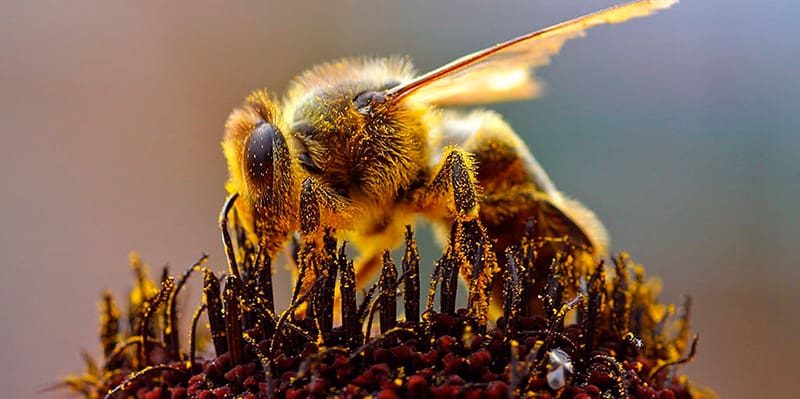
Study shows that bees are totally stops during total solar eclipse
Bees' behavior is definitely something that needs to be studied. It was thinking about how curious these beings are that researchers at the University of Missouri, US us, decided to find out what the bees look like during a total solar eclipse. There were more than 400 scientists responsible for analyzing the insect's behavior during the total solar eclipse that happened in 21 August 2017 and it was visible in North America. At this point they found that the bees are completely still!
In order for this observation to occur with mastery, 16 acoustic monitoring stations in Oregon, Idaho and Missouri where it was possible to hear and record the buzzing of bees. This system was recently tested in the field to record the pollination phenomenon through small USB microphones, this was a study led by biologist Candace Galen. Well, as 16 stations were hung in areas far from large centers and with great pollination activity. Light and temperature sensors were also placed in some locations.
“It felt like the perfect fit”, stated Candace. "The tiny microphones and temperature sensors could be placed close to flowers hours before the eclipse."
When the eclipse ended, all the equipment was sent back to the biologist's laboratory, who said that the tinnitus coincided exactly with the time of the eclipse. Unfortunately, it was not possible to verify which species of bees were buzzing, however, the most common in the areas surveyed were Bombus drones and European bees (Apis mellifera).
"We anticipate, based on some reports in the literature, that the activity of the bees would decrease as the light fell during the eclipse and reached the minimum of its totality ”, conta Candace. “But we didn't expect the change to be so abrupt, that the bees continue to fly to the full and then stop completely. That surprised us. ”
In all 16 observation points only a buzzing bee was noticed during the entire eclipse. Bees flew for a longer period of time, which was interpreted by scientists as a slower flight, which is also observed when insects are returning to the hive at sunset. It was also possible to observe how the operation of bees works.
“The eclipse gave us the opportunity to ask whether the new environmental context, half open sky, would alter the behavioral response of bees in low light ”, stated Candace. “How we found out, complete darkness causes the same behavior in bees, regardless of time or context. And this is new information about their cognition. ”
With an upcoming total eclipse scheduled for 8 April 2024, the goal now is to improve the equipment to be able to understand the different types of bee flights, whether they are flying into the foliage or still returning home. The idea is to know if the bees are trying to get back to the hive before the eclipse.
Via: tri Curioso

Sorry, the comment form is closed at this time.